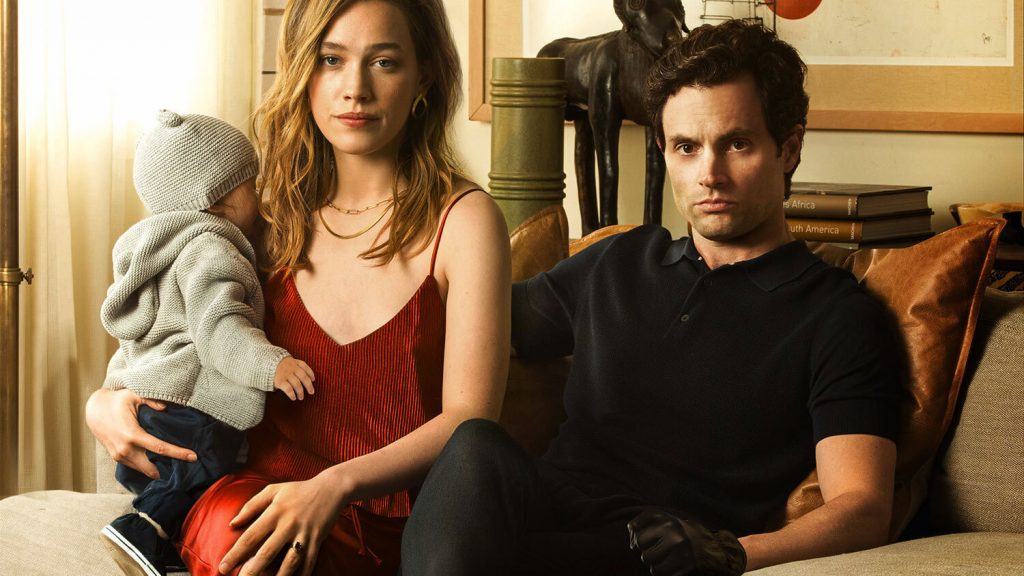The third season of the popular psychological thriller “You” was released on Oct. 15, adding another binge-worthy show to the front page of Netflix. The 10-episode season follows the demise of the protagonist Joe Goldberg’s marriage to chef Love Quinn, with just as many violent, and at times comical, antics as in previous seasons.
“You” first aired in 2018, introducing Joe Goldberg as the intelligent and well-read protagonist with a troubled past, who becomes dangerously obsessed with finding his perfect match through stalking and deception. The show was very popular among younger viewers and has even been the source of memes on social media about the intensity of Joe’s infatuations, as well as the signature hat he wears to be incognito.
Season three picks up right where season two left off, with Joe and his wife, Love, settling into marriage and parenthood in the fictionalized wealthy San Francisco suburb of Madre Linda. Despite the long wait for this next installment of the series, the familiar editing style that is easy on the eyes, helped by a high production value, makes it easy to slide right back into watching.
One of the things that make the show especially worth watching is its exciting storylines, which provide plenty of violent altercations and psychological deceit. In contrast to the other seasons, in which Joe was primarily the only one struggling with dangerous infatuation, Love has quickly become his match. Much of this season portrays their marriage and the struggles they encounter with the usual amount of twists and turns, keeping the episodes entertaining enough to watch one after the other.
The emphasis on Joe and Love as a couple additionally allows the actors to showcase their fantastic range of acting capabilities. Both Penn Badgley as Joe Goldberg and Victoria Pedretti as Love Quinn show their abilities to smoothly transition from feelings of adoration to rage to sadness and delusion all within one scene, making their characters all the more convincing. In addition to their standout roles, the entire cast provides performances that are well done and vary from comedic to extremely dramatic.
An additional great aspect of this season, like those prior, is its witty commentary on social media influencers, the wealthy elite and pressing social issues. Many of the critiques of the privilege, hypocrisy and superficiality of the rich and powerful come from the somewhat exaggerated supporting characters of Joe and Love’s rich and notable neighbors. The snarky and two-faced “mommy blogger” Sherry Conrad, who spews progressive views yet looks down on others, is a prime example. Joe also mentions COVID-19 and points out the accessibility of vaccines to the rich. This sharp commentary, while often provoking laughs, adds depth to the show that seeks to make Joe, who comes from a disadvantaged background, all the more likable to the viewer.
Despite the many strengths of this season, the formulaic plotline of the show created some weaknesses in this season. While the two previous seasons followed the similar premise of Joe following his obsession no matter the danger and harm it poses to others, this third installment felt a bit more tiresome and boring, as viewers already know what to expect from Joe. While it is still entertaining to watch him bring his obsessions to fruition, and there were some unexpected twists and turns along the way, it was relatively predictable and left a bit more to be desired in terms of Joe’s overall character development. Seeing him change his M.O. a bit more or having him break the mold of his infatuations would have been more attention-grabbing.
Another weak point was the addition of some unrealistic and unnecessary storylines to further the plot. At times the episodes, especially toward the middle of the season, began to drag on a little bit with too many storylines, details and interactions occurring at the same time that overloaded the plot and viewer. While most of the unrealistic and additional storylines were interesting and provided depth to the characters, removing a few of them or simply shortening the length allotted to these unnecessary plot moments would have made the season feel more streamlined.
Season three of “You,” with its pseudo-intellectual references, social criticisms and continuing exploration of Joe’s obsessive tendencies and their origins, is, at the end of the day, a fun and entertaining addition to an easy-to-watch show. While this season struggled with making a coherent and exciting plotline, it still manages to bring Joe’s story forward. If you want to sit back and watch one man’s personal struggle with infatuation, love and murder but still laugh and somehow simultaneously feel sympathy for characters you didn’t think it would be possible to like, season three of “You” is a perfect choice.
Rating: 3.5 out of 5 stars



